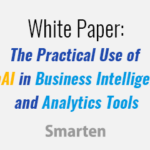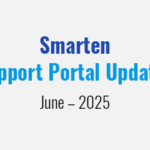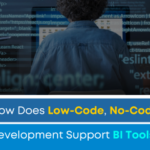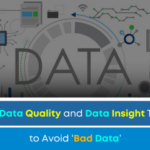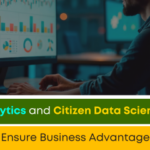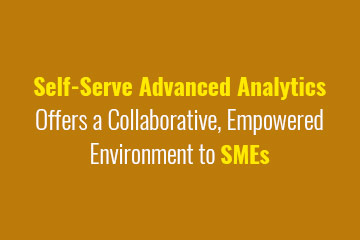
The use of business intelligence and business analytics is growing in every industry, business function and in companies of every size. 48% of small and medium sized business CIOs responding to a Gartner survey revealed that business intelligence (BI), data and analytics is one of the technology areas that will have the largest amount of new or additional spending.
Much has been made of the small and medium sized business move to roll out advanced analytics to the business user community, and the resulting improvement in decision-making and in productivity, there is another factor that comes into play.
With increased competition for the best resources and team members, the average SME business is hard-pressed to recruit, find and retain the best talent and to use that talent to advance their products and services in the market.
Data literacy is something most businesses want to encourage. Where the business can provide appropriate tools and solutions it can more dependably ensure success at the individual, team and business unit level. With the right tools, team members are less likely to be frustrated with processes and activities and more likely to feel that they are an asset to the organization and recognize that they understand what it takes to achieve results in the business environment.
When a small or medium sized business implements self-serve augmented analytics solutions, every employee can act as a Citizen Data Scientist and their knowledge and use of an advanced analytics solution will enhance the value and empowerment of business talent and engender employee satisfaction and data sharing. But beyond that, the team member will feel empowered and will be allowed to creatively use advanced analytics to solve problems and achieve goals.
By giving employees the right tools, the business can hold team members accountable, and encourage power users to engender data popularity and an investment in the collaborative environment, so every team member feels confident and understands their value to the organization.
When a business is considering a self-serve BI tools initiative and the implementation of advanced analytical tools, it should include employee empowerment and the optimization and actualization of employee potential and team member satisfaction in its assessment criteria.
There is no doubt that business analytics can help the organization to plan, forecast and predict more accurately, and that this type of solution can improve competitive positioning and customer acquisition and satisfaction. But, in a world where businesses find it increasingly difficult to attract and retain good talent, advanced analytics can help employees achieve their potential and create a more collaborative, rewarding environment for every team member.




